DevOps Trends to Watch in 2025: Automation, AI, and More
- Nitin Yadav
- Knowledge
About
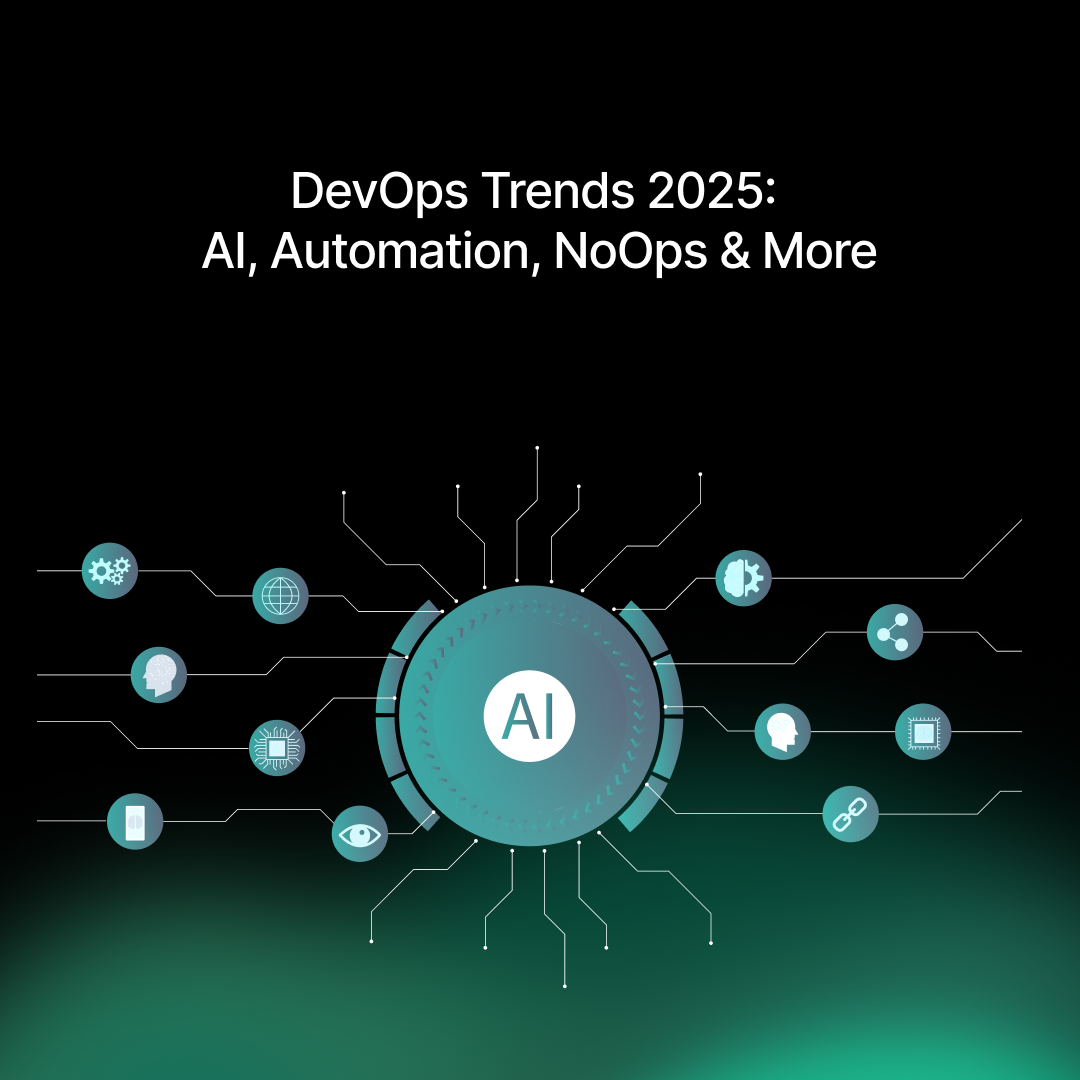
Discover the top DevOps trends for 2025, including AI-driven automation, GitOps, NoOps, and DevSecOps. Learn how these innovations are shaping the future of software development and deployment.
Industries
- AI in DevOps, CI/CD Automation, Cloud Innovations, DevOps, DevOps Trends, DevSecOps, GitOps
Share Via
Introduction
DevOps is evolving rapidly, with automation, AI, security, and cloud innovations shaping the way organizations develop, deploy, and manage applications. As businesses seek faster, more reliable software delivery, the adoption of AI-driven automation, GitOps, NoOps, and DevSecOps is transforming traditional DevOps practices.
In this article, we will explore the top DevOps trends for 2025 and how they can impact businesses. Whether you are a developer, DevOps engineer, or CTO, these insights will help you stay ahead of the curve and prepare for the future of software development.
The Rise of AI and Machine Learning in DevOps
AI-Powered Automation in CI/CD Pipelines
Artificial Intelligence is increasingly being integrated into DevOps workflows, improving automation, efficiency, and security. AI-driven solutions can:
- Automate CI/CD pipeline optimizations, reducing deployment failures.
- Predict potential bottlenecks using anomaly detection.
- Enhance auto-remediation, reducing manual intervention in system failures.
Use Cases of AI in DevOps
- Predictive Analytics: AI can analyze historical deployment data to forecast potential failures.
- Automated Code Reviews: AI tools like GitHub Copilot assist developers in writing better code.
- AIOps (AI for IT Operations): Solutions like AWS AI DevOps Guru detect and resolve infrastructure issues.

Key Tools for AI-Driven DevOps
- GitHub Copilot – AI-powered code completion.
- AWS AI DevOps Guru – Predictive issue resolution.
- Dynatrace – AI-driven monitoring and observability.
GitOps and Infrastructure as Code (IaC) Evolution
The Shift Towards GitOps for Infrastructure Management
GitOps is becoming the standard for infrastructure automation, providing version control and declarative infrastructure. Benefits include:
- Consistent and repeatable deployments using Git as a single source of truth.
- Automated rollbacks in case of failures.
- Faster deployment pipelines with improved security.
Infrastructure as Code (IaC) Growth
Infrastructure as Code (IaC) is evolving with tools like:
- Terraform – Multi-cloud IaC automation.
- Pulumi – Code-driven infrastructure.
- Crossplane – Kubernetes-native IaC management.
NoOps and Hyper-Automation: The Next Level of DevOps
What is NoOps?
NoOps refers to fully automated IT operations, where minimal human intervention is required. This is achieved using:
- Serverless computing (AWS Lambda, Azure Functions).
- AI-driven auto-healing infrastructure.
- Self-managed Kubernetes clusters.
How Hyper-Automation is Changing DevOps
Hyper-automation involves combining AI, machine learning, and RPA (Robotic Process Automation) to streamline operations. Key impacts include:
- Reduced manual workloads for DevOps teams.
- Faster troubleshooting and auto-remediation.
- Improved efficiency and security in cloud environments.
The Expanding Role of Security: DevSecOps Becomes the Standard
Why DevSecOps is a Must in 2025
With increasing cybersecurity threats, DevSecOps ensures security is embedded in every stage of development. Key benefits:
- Automated security testing (SAST, DAST, RASP) in CI/CD pipelines.
- Zero Trust architecture, preventing unauthorized access.
- Supply chain security, preventing vulnerabilities in third-party dependencies.
Key Security Practices in DevOps
- Shift-left security – Integrating security testing early in development.
- Use of SBOMs (Software Bill of Materials) – Tracking open-source dependencies.
- Container Security – Scanning Docker/Kubernetes environments.
Recommended Tools:
- Snyk – Automated vulnerability scanning.
- Aqua Security – Container security.
- Checkmarx – Static code security analysis.
Kubernetes and Cloud-Native DevOps Trends
Kubernetes Automation and Orchestration
Kubernetes continues to dominate container orchestration, with trends like:
- Kubernetes Operators for managing workloads.
- KNative for serverless applications.
- OpenTelemetry for observability and monitoring.
The Role of Edge Computing in DevOps
Edge computing enables faster application processing, reducing latency. Use cases include:
- 5G-powered applications.
- AI-driven IoT analytics.
- Distributed cloud infrastructure.
Platform Engineering: Enhancing Developer Productivity
The Rise of Internal Developer Portals (IDPs)
Platform Engineering enables self-service DevOps, improving developer experience with:
- Automated workflow management.
- Standardized deployment templates.
- Self-service infrastructure provisioning.
Popular Tools:
- Atmosly – Self-Service DevOps Platform
- Backstage – Internal developer portal.
- Humanitec – Cloud-native developer platforms.
- Cortex – Service catalog and platform management.
FinOps and Cost Optimization in DevOps
How FinOps is Reshaping Cloud Cost Management
FinOps (Financial Operations) is crucial for optimizing cloud expenses. Key strategies:
- Cloud cost monitoring using AI-driven tools.
- Cost forecasting and budgeting.
- Automated scaling to reduce waste.
Best Tools for DevOps Cost Optimization
- Kubecost – Kubernetes cost monitoring.
- AWS Cost Explorer – Cloud cost management.
- Spot.io – Automated cost-saving strategies.
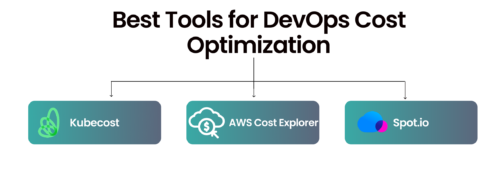
The Future of CI/CD: Smarter, Faster, and More Scalable Pipelines
Emerging CI/CD Trends
- Event-driven pipelines, reducing delays.
- Progressive delivery methods (blue-green, canary deployments).
- AI-powered deployment monitoring.
Popular CI/CD Tools in 2025
- ArgoCD – Kubernetes-native continuous delivery.
- Jenkins X – Cloud-native CI/CD automation.
- GitHub Actions – Integrated automation workflows.
Conclusion: Preparing for the Future of DevOps
The DevOps landscape in 2025 is evolving with AI, automation, security, and cloud-native technologies playing a crucial role. Organizations must embrace these innovations to enhance efficiency, security, and scalability.
How SquareOps Can Help
At SquareOps, we help businesses adopt cutting-edge DevOps solutions, automate workflows, and optimize cloud operations.
Book a free consultation today to future-proof your DevOps strategy.
Frequently asked questions
The key trends in 2025 include AI-powered automation, NoOps, GitOps, DevSecOps, Kubernetes advancements, and FinOps for cost optimization.
AI is enhancing DevOps by automating CI/CD pipelines, improving anomaly detection, and enabling predictive issue resolution, reducing manual intervention.
NoOps refers to fully automated IT operations with minimal human involvement, leveraging serverless computing, AI, and automation. It complements DevOps but won’t entirely replace it.
GitOps provides version-controlled, declarative infrastructure management, making deployments more consistent, automated, and rollback-friendly.
DevSecOps integrates security at every stage of DevOps, using automated security testing, zero trust models, and supply chain security measures to reduce vulnerabilities.
Kubernetes remains the leading container orchestration platform, evolving with Kubernetes Operators, KNative for serverless, and OpenTelemetry for monitoring.
FinOps (Financial Operations) helps organizations optimize cloud spending, reduce waste, and improve budget forecasting with AI-driven cost analysis tools.
Platform engineering focuses on building self-service DevOps platforms, using Internal Developer Portals (IDPs) like Backstage and Cortex to improve workflows.
CI/CD is evolving with event-driven pipelines, progressive delivery (blue-green, canary), and AI-powered deployment monitoring for faster and more reliable releases.
Businesses should embrace automation, invest in security-first DevOps, adopt AI-driven solutions, and integrate cloud cost optimization strategies to stay competitive.
Related Posts
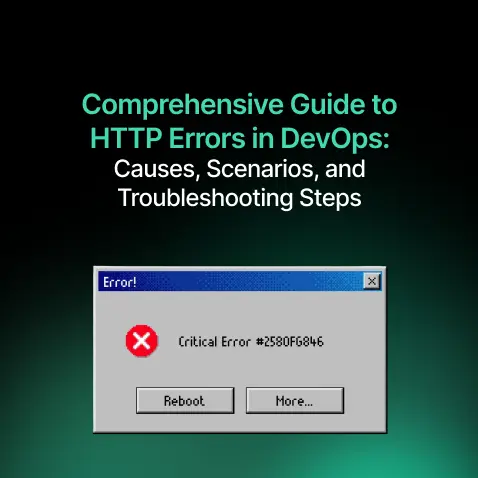
Comprehensive Guide to HTTP Errors in DevOps: Causes, Scenarios, and Troubleshooting Steps
- Blog
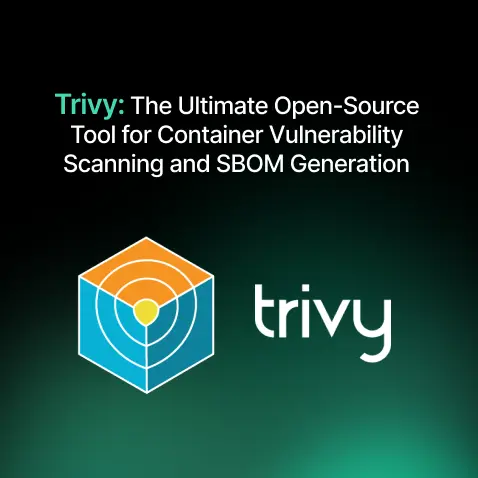
Trivy: The Ultimate Open-Source Tool for Container Vulnerability Scanning and SBOM Generation
- Blog
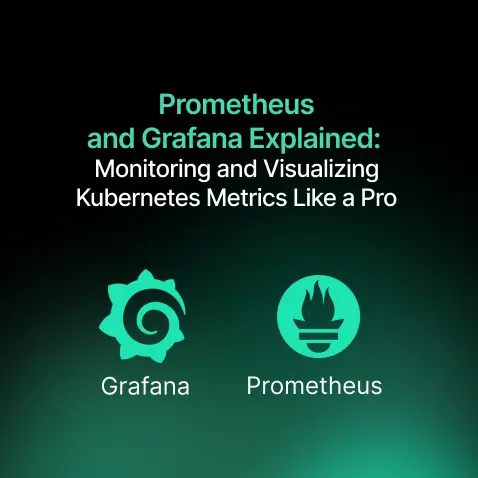
Prometheus and Grafana Explained: Monitoring and Visualizing Kubernetes Metrics Like a Pro
- Blog
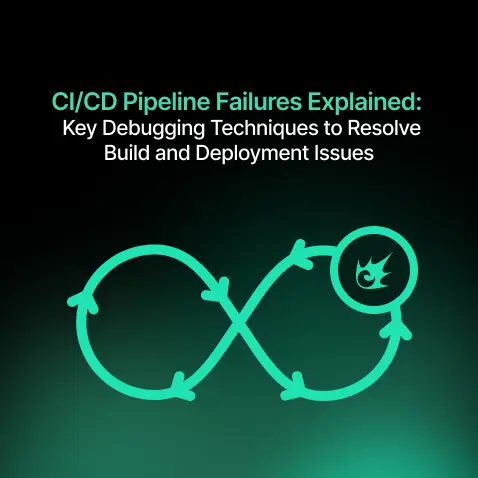
CI/CD Pipeline Failures Explained: Key Debugging Techniques to Resolve Build and Deployment Issues
- Blog
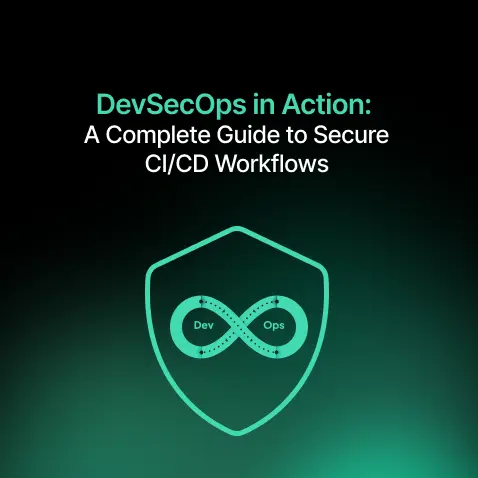
DevSecOps in Action: A Complete Guide to Secure CI/CD Workflows
- Blog
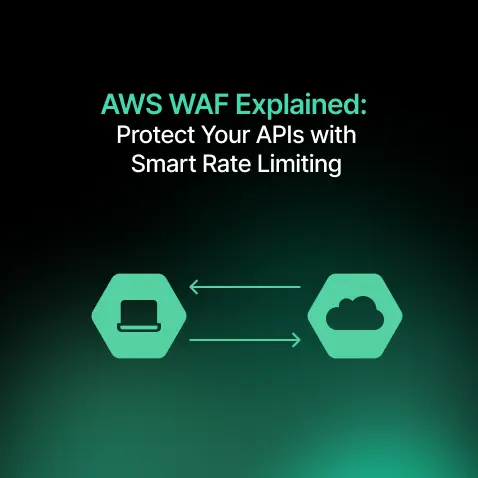
AWS WAF Explained: Protect Your APIs with Smart Rate Limiting
- Blog

